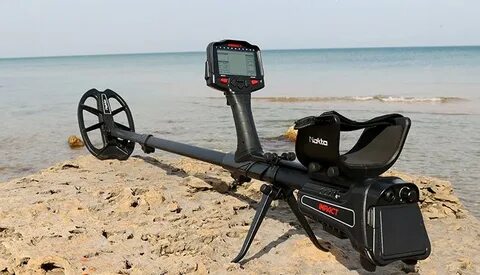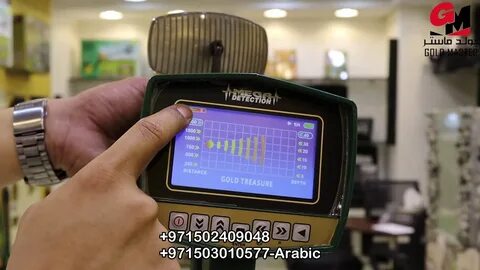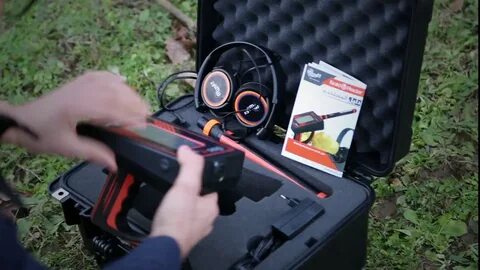Apa itu metal detector? Metal detectors are electronic devices designed to detect the presence of metal objects within a certain range. They are commonly used in a variety of applications, from industrial settings to security and personal hobbies. In this article, we will explore the basics of metal detection, including how metal detectors work and their various uses. Whether you are new to metal detecting or simply curious about how these devices operate, this guide will provide you with a comprehensive understanding of metal detectors and their functionality.
A metal detector is an electronic device that is used to detect the presence of metal objects nearby. It works by generating a magnetic field and then sensing any disturbances in that field caused by metal objects. When a metal object is detected, the device produces an audible or visual signal to alert the user. Metal detectors are commonly used for security purposes, such as in airports and government buildings, to screen for weapons and other prohibited items. They are also used in various industries, such as mining and construction, to locate metal objects buried underground. In addition, metal detectors are popular among hobbyists and treasure hunters who use them to search for coins, jewelry, and other valuable items buried in the ground. Many people also use metal detectors for outdoor activities like beachcombing and exploring historical sites. Overall, metal detectors are versatile tools that are used for a wide range of applications, from security and industrial purposes to recreational and leisure activities.
The Evolution of Metal Detectors: From Past to Present

Have you ever wondered what exactly a metal detector is and how it works? Simply put, apa itu metal detector is a device that uses an electromagnetic field to detect the presence of metal objects. This technology has a wide range of applications, from security screening in airports to archaeological excavations.
The evolution of metal detectors has come a long way since their inception in the late 19th century. Originally used for the sole purpose of locating metal objects underground, metal detectors have undergone significant advancements to cater to a wider range of industries and applications. In the early days, metal detectors consisted of bulky and cumbersome devices that were primarily used for military and industrial purposes. However, with the advancements in technology, metal detectors have become more compact, versatile, and user-friendly. The introduction of new technologies such as pulse induction and very low frequency (VLF) have significantly improved the performance and accuracy of metal detectors. These advancements have made it possible for metal detectors to be used in a variety of industries including security, construction, archaeology, and even recreational treasure hunting. The integration of digital signal processing and advanced software algorithms has further improved the capabilities of metal detectors, allowing for better discrimination between different types of metals and reducing false alarms. Modern metal detectors also come equipped with features such as waterproof and ergonomic designs, wireless connectivity, and GPS integration, making them more efficient and user-friendly than ever before. Overall, the evolution of metal detectors has transformed these devices from simple tools for locating metal objects to sophisticated and versatile instruments that cater to a wide range of applications. With ongoing advancements in technology, the future of metal detectors looks promising, with the potential for further improvements in performance, sensitivity, and user experience.
Understanding the Mechanics of Metal Detector Technology

Understanding the mechanics of metal detector technology involves gaining a thorough knowledge of the components and processes involved in detecting metal objects. This includes understanding how the transmitter coil produces a magnetic field, how the receiver coil detects changes in the magnetic field caused by metal objects, and how the detector's circuitry processes these signals to determine the presence of metal. Additionally, understanding the various settings and features of a metal detector, such as sensitivity and discrimination, is essential for maximizing its effectiveness in different environments and applications. Familiarity with the principles of operation and the technical specifications of metal detectors is crucial for those involved in their use, maintenance, and development.
How Metal Detectors Are Used in Various Industries

Metal detectors are commonly used in various industries for quality control and safety purposes. In the food industry, metal detectors are used to ensure that products are free from metal contaminants, which can be harmful to consumers and damage production equipment. In the mining and construction industry, metal detectors are used to locate and extract metal materials from the ground. In the security industry, metal detectors are used to screen individuals for prohibited metal objects, such as weapons, before entering a premises. Additionally, metal detectors are also used in the pharmaceutical and textile industries to ensure product quality and safety. Overall, metal detectors play a critical role in helping industries maintain product integrity and ensure workplace safety.
The Role of Metal Detectors in Security Screening Processes

Metal detectors play a crucial role in security screening processes by detecting any metallic objects that individuals may be carrying. They are instrumental in identifying potential weapons or other dangerous items that could pose a threat to the safety of a particular area or event. Metal detectors are commonly used in airports, government buildings, schools, and other public spaces to ensure that people are not bringing in any prohibited items. Additionally, they are often used in conjunction with other security measures such as X-ray machines and physical pat-downs to provide comprehensive screening. The use of metal detectors helps to enhance overall security and provide peace of mind for those entering the screened area.
The Impact of Metal Detectors on Archaeological Discoveries
Metal detectors can have both positive and negative impacts on archaeological discoveries. On one hand, metal detectors have the potential to uncover buried artifacts and valuable historical objects that may have otherwise gone unnoticed. This can greatly contribute to our understanding of past civilizations and cultures. However, on the other hand, metal detectors in the hands of unauthorized or untrained individuals can lead to looting and destruction of archaeological sites. Looters may use metal detectors to locate and remove valuable artifacts, causing irreparable damage to the site and depriving researchers of important historical information. In response to these concerns, many countries have implemented strict regulations on the use of metal detectors in archaeological areas. This includes requiring permits for metal detecting activities and restricting access to sensitive sites. Additionally, professional archaeologists often use metal detectors as part of their research to locate and study artifacts in a controlled and ethical manner. Overall, the impact of metal detectors on archaeological discoveries is complex and depends on how they are used. When utilized responsibly and in accordance with established regulations, metal detectors can contribute to important archaeological findings. However, their misuse can have detrimental effects on the preservation of historical sites and artifacts.
Choosing the Right Metal Detector for Your Needs
3d gold scanner
When choosing a metal detector, consider the type of hunting you'll be doing. There are detectors specifically designed for gold prospecting, underwater hunting, coin shooting, and relic hunting. Also, consider the user experience, as some detectors are more beginner-friendly than others. Additionally, think about the weight and size of the detector, as well as the available accessories and warranty options. Finally, set a budget and do thorough research before making a purchase.
The Legal Implications of Using Metal Detectors
Metal detectors are regularly used in various settings such as airports, schools, and government buildings for security purposes. However, their usage raises legal implications that need to be considered. For example, in some jurisdictions, using metal detectors in certain public spaces may be seen as a violation of privacy or civil rights. Additionally, the differentiation between security screenings and unwarranted searches may also come into play when using metal detectors. It’s important for organizations and individuals to be aware of these legal implications and ensure that their use of metal detectors complies with applicable laws and regulations.
Common Misconceptions About Metal Detector Accuracy
Metal detectors are commonly thought to be highly accurate, capable of detecting metal objects with pinpoint precision. However, there are several misconceptions about their accuracy. One common misconception is that all metal detectors are equally accurate. In reality, different types of metal detectors have varying levels of accuracy depending on factors such as the technology used and the manufacturer. Additionally, many people believe that metal detectors can detect metal objects buried deeply underground. While some high-powered metal detectors can detect objects at greater depths, the accuracy and effectiveness of detection decreases as the depth increases. It's important to understand that while metal detectors can be valuable tools, their accuracy is not absolute and can be affected by various factors such as environmental conditions and the type of metal being detected.
Innovative Features of Modern Metal Detector Models
Modern metal detector models often come equipped with innovative features that enhance their performance and usability. Some of these features include advanced target identification technology, which helps users distinguish between different types of metals and provides valuable information about the detected object. Additionally, many modern metal detectors are designed with built-in GPS systems, allowing users to track their search patterns and mark specific locations for future exploration. Other innovative features may include wireless connectivity options for sharing data and updates, as well as customizable settings to adjust sensitivity and discrimination levels. These advanced features make modern metal detectors highly efficient and user-friendly tools for hobbyists, professionals, and enthusiasts alike.
Exploring the Future of Metal Detector Technology
Exploring the future of metal detector technology involves considering advancements in sensor technology, signal processing, and data analysis. Researchers are looking at ways to improve detection accuracy, minimize false positives, and enhance the overall efficiency of metal detectors. This includes exploring the use of newer materials, such as graphene, in sensor construction, as well as incorporating machine learning algorithms for smarter target identification. Additionally, the integration of wireless communication and cloud-based data storage is being explored to allow real-time monitoring and analysis of detector performance. Overall, the future of metal detector technology is focused on pushing the boundaries of what is possible in terms of precision, reliability, and ease of use.
In conclusion, a metal detector is a device that uses electromagnetic fields to detect the presence of metal objects. It is commonly used in various fields such as security, archaeology, and hobbyist treasure hunting. Understanding the basics of metal detection, including how it works and its applications, can be helpful for those looking to use or purchase a metal detector for their specific needs. Apa itu metal detector, dapat dijelaskan sebagai alat yang menggunakan medan elektromagnetik untuk mendeteksi keberadaan benda logam.
See also
https://ajaxdetector.com/ar/ https://www.metaldetectorsforgold.net/%D8%A3%D8%AC%D9%87%D8%B2%D8%A9-%D8%A7%D9%84%D9%83%D8%B4%D9%81-%D8%B9%D9%86-%D8%A7%D9%84%D9%85%D8%B9%D8%A7%D8%AF%D9%86-%D8%A7%D9%84%D8%B0%D9%87%D8%A8.html https://www.detectors-shop-dubai.com/%D8%A7%D9%84%D9%85%D8%AF%D9%88%D9%86%D8%A9/%D8%A7%D8%AC%D9%87%D8%B2%D8%A9-%D9%83%D8%B4%D9%81-%D8%A7%D9%84%D8%B0%D9%87%D8%A8-%D9%88%D8%A7%D9%84%D9%85%D8%B9%D8%A7%D8%AF%D9%86 https://www.ragazzipizzeria-raszyn.pl/2019_Jul_27+3283.html https://medium.com/@metal-detectors/%D8%A7%D8%AC%D9%87%D8%B2%D8%A9-%D9%83%D8%B4%D9%81-%D8%A7%D9%84%D8%B0%D9%87%D8%A8-%D9%88%D8%A7%D9%84%D9%83%D9%86%D9%88%D8%B2-%D8%A7%D9%84%D8%A7%D8%AB%D8%B1%D9%8A%D8%A9-cefffecebe38